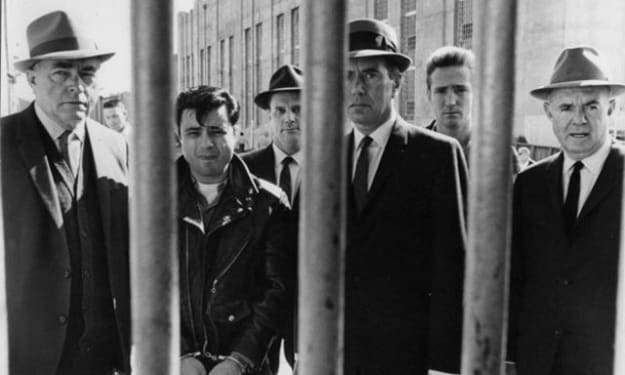The Psychology Behind False Confessions: Understanding, Impact, and Prevention
Understanding False Confessions

False confessions are a very troubling phenomenon. Why do they happen? How can someone confess to a crime they did not commit. Let us explore the psychology behind false confessions, including their definition and types, psychological factors contributing to them, interrogation techniques, case studies, and the impact on wrongful convictions, emphasizing the need for reforms to prevent future false confessions and wrongful convictions.
Definition and Types of False Confessions
False confessions represent a fascinating and complex phenomenon where individuals admit guilt to a crime they did not commit. These confessions can be broadly classified into three types: voluntary, persuaded, and compliant. Voluntary false confessions can stem from a variety of psychological disorders or rational motives. For instance, a person may voluntarily confess to a high-profile crime for notoriety or attention. On the other hand, persuaded false confessions are typically the result of lengthy and intense interrogations that involve accusations, the discrediting of denials, and even the fabrication of evidence. These interrogations can be so severe that the individual starts questioning their memory and may become convinced of guilt.
Compliant false confessions, the third type, are given to escape a stressful situation or gain a perceived reward. Often, these confessions are the product of significant psychological pressure. For example, a suspect may falsely confess to end a grueling interrogation or in the misguided belief that they will receive a lighter sentence if they cooperate. It’s important to note that while these categories help understand the psychology of false confessions, each case is unique and may involve elements of more than one type.
Psychological Factors Contributing to False Confessions
Numerous psychological factors can contribute to false confessions, with stress, the desire to escape interrogation, and confidence in innocence being among the most common. Stress, mainly when it is intense and prolonged, can impair judgment, making a person more likely to falsely confess. Similarly, the desire to escape from the discomfort of an interrogation can overpower a person’s rational decision-making processes. Interestingly, an individual’s confidence in their innocence can paradoxically lead to a false confession as they may believe that the truth will eventually come out.
The susceptibility to false confessions is heightened in individuals with specific vulnerabilities, such as the “memory distrust syndrome.” This term, introduced by Gudjonsson and MacKeith, describes a situation where a person doubts their memory’s reliability to such an extent that they are susceptible to suggestions and manipulations during an interrogation. Additionally, it’s paramount to consider the impact of psychological disorders and rational motives on voluntary false confessions. For instance, individuals with certain mental illnesses may be more prone to false confessions due to difficulties in understanding the situation or coping with the pressure of an interrogation.
Interrogation Techniques and Their Impact on False Confessions
Interrogation techniques play a significant role in eliciting false confessions. The Reid Technique, which focuses on identifying the suspect’s vulnerabilities to obtain a confession, is one such method. This approach, based on psychological manipulation, can cause suspects to question their memory and even convince them of their guilt, leading to false confessions. Coercive interviewing techniques, which aim to break down a suspect’s resistance and denials, can similarly contribute to false confessions.
The use of solitary confinement and other coercive measures can enhance the likelihood of false confessions. For instance, the threat and use of solitary confinement were notable features in the Gudmundur and Geirfinnur cases, leading to false confessions. Additionally, in the United States, police are legally permitted to lie to suspects about the evidence against them. This tactic can create additional psychological pressure and substantially increase the likelihood of false confessions.
Example: The Case of “The Norfolk Four”
“The Norfolk Four” case is a tragic example of the devastating effects of wrongful convictions. The case involved four United States Navy sailors — Derek Tice, Danial Williams, Joseph Dick Jr., and Eric Wilson — who were wrongly convicted for the 1997 rape and murder of Michelle Moore-Bosko based on false confessions. These false confessions were the result of high-pressure interrogation tactics and were not supported by any corroborating evidence.
The wrongful convictions led to a decade of imprisonment for the innocent sailors, causing tremendous mental anguish and suffering. However, the case also brought attention to the flaws in the criminal justice system, particularly the risk of false confessions. It prompted advocacy for reforms such as legislation mandating the electronic recording of interrogations and training for police officers.
Similarly, analysis of other proven false confession cases in the USA and UK has led to the development of scientific-based confession research, providing invaluable insights into the psychological aspects of false confessions. This research emphasizes the importance of understanding the psychological dynamics at play during an interrogation and the significant role they play in eliciting false confessions.
Impact of False Confessions on Wrongful Convictions
False confessions have a consequential impact on wrongful convictions, a problem that is more prevalent than most realize. Over 2,500 exonerations have occurred since 1989, with approximately 12% involving false confessions. These statistics highlight the grave impact of false confessions, underscoring the necessity for reform in this aspect of the criminal justice system.
The role of false confessions in contributing to systemic failures and resistance to admitting mistakes in the criminal justice system should not be underestimated. The presumption of guilt can lead to tunnel vision, where investigators ignore evidence contradicting their preconceived notions. This focus on securing a confession, rather than uncovering the truth, can lead to tragic miscarriages of justice.
Vulnerability of Certain Demographics to False Confessions
Specific demographics are particularly susceptible to false confessions. Teenagers, for example, with their still-developing brains, are especially likely to plead guilty to crimes they didn’t commit, emphasizing the age-related vulnerability to false confessions. The relative immaturity of teenagers can impair their ability to fully understand the consequences of their actions or to withstand the pressures of an intense interrogation.
Research has shown that most false confessors are young people, predominantly male, and are likely to score high on tests of eagerness to please or conform in social situations. This underscores the demographic vulnerabilities and highlights the need for specific protections for these populations. The susceptibility of innocent people, particularly those from vulnerable demographics, to police tactics and psychological pressures is an area that warrants further focus and research.
The Psychology of Interrogators and Suspects
Psychological pressures can significantly influence both interrogators and suspects, leading to confirmation bias and influencing the outcome of the interrogation process. Interrogators, convinced of a suspect’s guilt, may unconsciously steer the interrogation in a direction that confirms their preconceived belief. Similarly, suspects, under the intense stress and isolation of an interrogation, can become convinced of their guilt, leading to a false confession.
Recognizing and addressing the psychological impact of intense isolation and the stress of interrogation on both investigators and suspects is crucial. Training programs for investigators must include components that help them understand and mitigate these psychological effects. Also, the recommendations by experts such as Kassin and Gudjonsson, including videotaping interviews and limiting the ability of police to lie, are essential in improving the interrogation process.
Recommendations to Prevent False Confessions
Preventing false confessions requires systemic changes in interrogation procedures and legal protections for suspects. Key recommendations include videotaping all interviews and limiting the ability of police to lie to suspects. Videotaping provides an objective interrogation record, allowing for later review and scrutiny, while restricting deceptive tactics can reduce the psychological pressure on suspects.
Emphasizing the importance of not waiving the right to an attorney, regardless of perceived innocence, can also significantly contribute to preventing false confessions. Legal counsel can provide a crucial buffer between the suspect and the police, ensuring that the suspect’s rights are protected. Additionally, there is a need for comprehensive reforms in interrogation practices and legal procedures to address the psychological vulnerabilities leading to false confessions.
The Conclusion
The phenomenon of false confessions is a complex interplay of psychological factors, interrogation techniques, and systemic issues within the criminal justice system. Understanding these dynamics is crucial in preventing wrongful convictions and ensuring the justice system’s integrity. It emphasizes the need for significant reforms, including changes in interrogation practices, increased legal protections for suspects, and greater awareness of the psychological factors that contribute to false confessions. As research continues to shed light on this issue, it is our collective responsibility to address these challenges for a justice system that strives not to make mistakes.
Would you like some further reading on this subject? “The Norfolk Four” The Wrong Guys: Murder, False Confessions, and the Norfolk Four Hardcover and other formats at Amazon. (Please note that this is an affiliate link. If you make a purchase I will receive a small commission at no addition expense to you)
About the Creator
Matthew Jack
My 30-year law enforcement career fuels my interest in true crime writing. My writing extends my investigative mindset, offers comprehensive case overviews, and invites you, my readers, to engage in pursuing truth and resolution.
Enjoyed the story? Support the Creator.
Subscribe for free to receive all their stories in your feed. You could also pledge your support or give them a one-off tip, letting them know you appreciate their work.






Comments
There are no comments for this story
Be the first to respond and start the conversation.